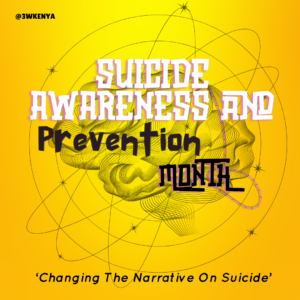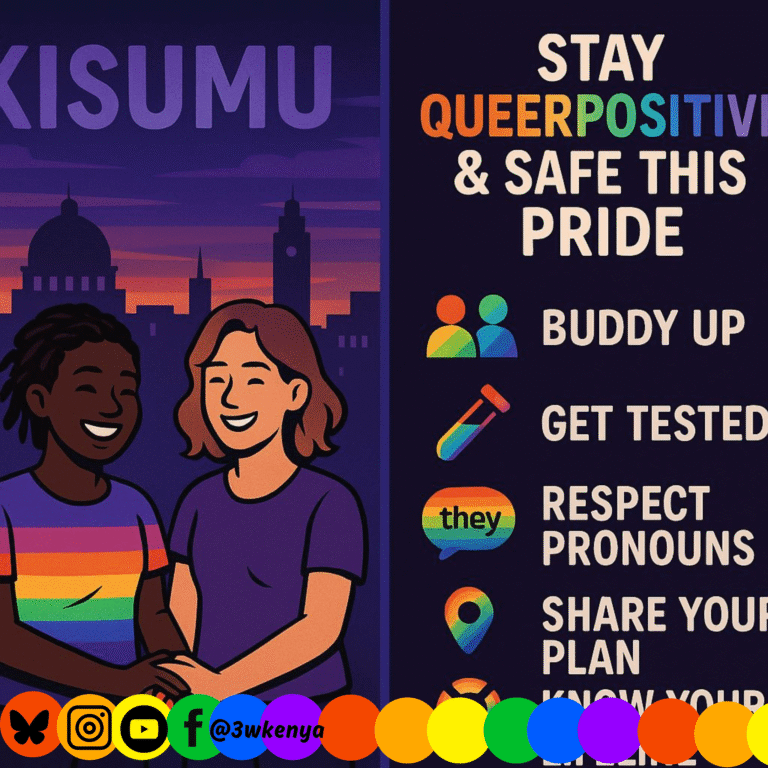Abort The Stigma
The conversation around abortion is often entangled in stigma, misinformation, and emotional discourse. Among the most persistent myths is that abortion causes long-term mental health issues, particularly for queer individuals assigned female at birth (AFAB). But what does the evidence say? And how can we shift the narrative for marginalized communities like LBQT persons, who already face significant mental health challenges?
In this post, we’ll explore the research on abortion and mental health, focusing on both global and Kenyan contexts, while addressing specific concerns for queer AFAB individuals.
The Research on Abortion and Mental Health
One of the most widespread misconceptions is that abortion leads to chronic mental health issues like depression, anxiety, trauma, hallucinations and suicidal ideation. However, extensive research shows that safe abortion, in and of itself, is not the root cause of these mental health problems.
According to a Journal of Abnormal Psychology study published by the American Psychological Association, the majority of individuals who undergo abortions do not suffer long-term mental health effects (NCBI). Instead, factors like pre-existing mental health conditions, lack of social support, and societal stigma are far more likely to contribute to post-abortion mental health struggles.
For queer AFAB individuals, the situation is even more complex. They often face discrimination not only based on their sexual orientation but also their gender identity and reproductive decisions, which can exacerbate mental health challenges. The Turn Away Study, a landmark piece of research, revealed that those denied abortions experienced more anxiety, lower self-esteem, and an increased likelihood of living in poverty as compared to those who were able to access the procedure (NCBI). This suggests that the mental health risks associated with abortion are more closely tied to the circumstances surrounding the procedure, rather than the procedure itself.
Kenya’s Complex Landscape
In Kenya, abortion is restricted. However, restrictive laws, cultural beliefs, and religious influences often make access to safe abortion services difficult. This lack of access forces many individuals to turn to unsafe methods, which can have serious consequences for both their physical and mental health.
For LBQT persons in Kenya, these barriers are compounded by the institutional exclusion of LBQT persons in the public health discourse. Many queer individuals face obstacles in accessing sexual and reproductive health services, and they may not receive the inclusive care they need. This can increase their risk of unsafe abortions, leading to worse health and mental health outcomes.
Mental Health Challenges for Queer People
LBQT individuals often face unique mental health challenges, including societal rejection, family alienation, and discrimination. Adding the need to seek abortion care to the mix can be particularly stressful for these individuals, mental health struggles often stem not from the abortion itself but from the societal stigma and lack of support they experience as queer individuals seeking reproductive healthcare. A common issue that has been witnessed in queer spaces in the Kenyan context has often been resulting in drug and substance abuse as a coping mechanism to various mental health struggles.
According to research from the National Center for Biotechnology Information (NCBI), mental health struggles post-abortion are frequently linked to external stressors like discrimination and lack of resources (NCBI). Queer AFAB individuals, particularly in Kenya, lack support systems and may face rejection from both their families and healthcare providers, further exacerbating their mental health challenges.

Changing the Narrative During Suicide Awareness Month
September is Suicide Awareness and Prevention Month, and this year’s theme, “Changing the Narrative,” offers a perfect opportunity to rethink how we talk about abortion—especially in relation to queer AFAB individuals. The common narrative that abortion leads to mental health issues like depression or suicidal thoughts is largely unsupported by evidence. In fact, having access to safe and supportive abortion care can actually reduce mental health risks, particularly for marginalized communities that already face significant challenges.
Research shows that abortion does not inherently cause mental health issues like depression or suicidal ideation. Instead, these challenges are often the result of stigma, discrimination, and lack of access to proper healthcare (NCBI).
Supporting Mental Health and Reproductive Rights for Queer AFAB Persons
To create a more supportive environment for queer AFAB individuals seeking abortions, we need to change the way we talk about mental health and reproductive rights. Here’s how we can start:
- Acknowledge that societal factors drive mental health outcomes pre- and post-abortion: Stigma, discrimination, and lack of support are often the real causes of mental health challenges before and after abortion, not the procedure itself.
- Provide inclusive, affirming healthcare: Train Healthcare providers to offer dignified and non-discriminatory care to queer AFAB individuals. This will enhance health care providers knowledge on LBQT persons needs and create a safe environment where LBQT person have confidence and can access safe abortion service without fear of being judged, hence reduce the cases of unsafe abortions while encouraging positive health seeking behaviours leading to improved mental health outcomes.
- Challenge harmful stereotypes: Conduct Public education campaigns such as knowledge-based sessions focus on dispelling myths about abortion and mental health. By shifting the conversation to the real issues—stigma, discrimination, and lack of resources—we can create a more supportive environment for those seeking reproductive healthcare.
- Ensure access to post-abortion mental health support: Queer AFAB individuals should have access to mental health services that acknowledge their unique experiences. This should be a key part of post-abortion care, particularly for those who face additional stressors due to their gender identity or sexual orientation.
Conclusion: Changing the Narrative
Abortion doesn’t inherently cause mental health problems, and it’s crucial to shift the narrative—especially for vulnerable groups like queer persons AFAB. For these individuals, the most significant mental health risks often come from societal rejection, stigma and discrimination and lack of access to safe healthcare. By focusing on inclusivity, support, and empathy, we can create a world where mental health and reproductive rights are intertwined and supported. Because ‘all oppression is connected’
This Suicide Awareness and Prevention Month, let’s commit to changing the conversation. Instead of perpetuating myths about abortion and mental health, let’s address the real challenges facing queer persons AFAB —from societal discrimination to the need for inclusive, affirming healthcare.
For more information on abortion and mental health, check out :
https://www.ncbi.nlm.nih.gov/pmc/articles/PMC3929105/
https://www.apa.org/monitor/2022/09/news-facts-abortion-mental-health
Written by:
Wanga Joy Loice
Communications and Advocacy Lead
Women Working with Women (3w)



